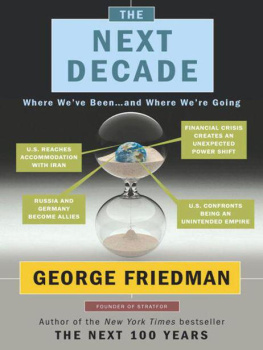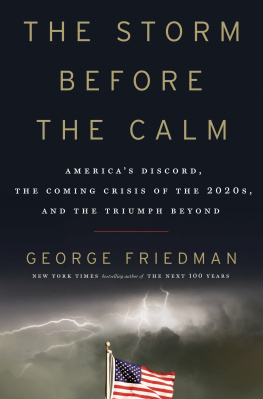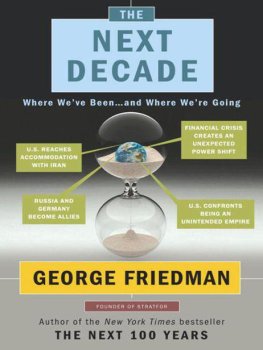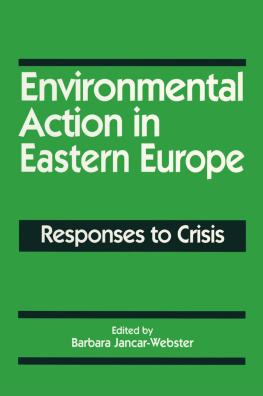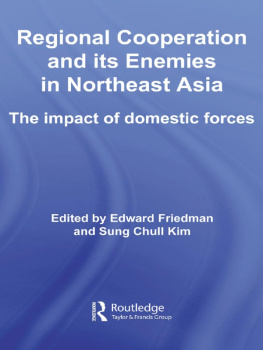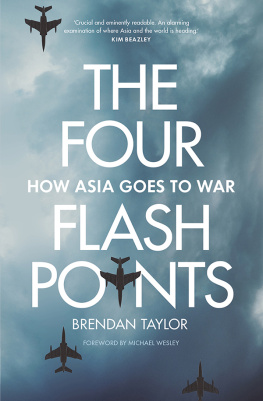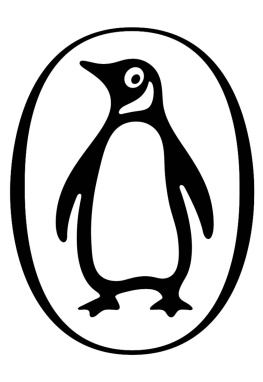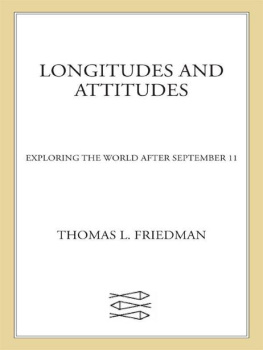George Friedman - Flashpoints: The Emerging Crisis in Europe
Here you can read online George Friedman - Flashpoints: The Emerging Crisis in Europe full text of the book (entire story) in english for free. Download pdf and epub, get meaning, cover and reviews about this ebook. year: 2015, publisher: Doubleday, genre: Politics. Description of the work, (preface) as well as reviews are available. Best literature library LitArk.com created for fans of good reading and offers a wide selection of genres:
Romance novel
Science fiction
Adventure
Detective
Science
History
Home and family
Prose
Art
Politics
Computer
Non-fiction
Religion
Business
Children
Humor
Choose a favorite category and find really read worthwhile books. Enjoy immersion in the world of imagination, feel the emotions of the characters or learn something new for yourself, make an fascinating discovery.

- Book:Flashpoints: The Emerging Crisis in Europe
- Author:
- Publisher:Doubleday
- Genre:
- Year:2015
- Rating:4 / 5
- Favourites:Add to favourites
- Your mark:
- 80
- 1
- 2
- 3
- 4
- 5
Flashpoints: The Emerging Crisis in Europe: summary, description and annotation
We offer to read an annotation, description, summary or preface (depends on what the author of the book "Flashpoints: The Emerging Crisis in Europe" wrote himself). If you haven't found the necessary information about the book — write in the comments, we will try to find it.
Flashpoints: The Emerging Crisis in Europe — read online for free the complete book (whole text) full work
Below is the text of the book, divided by pages. System saving the place of the last page read, allows you to conveniently read the book "Flashpoints: The Emerging Crisis in Europe" online for free, without having to search again every time where you left off. Put a bookmark, and you can go to the page where you finished reading at any time.
Font size:
Interval:
Bookmark:
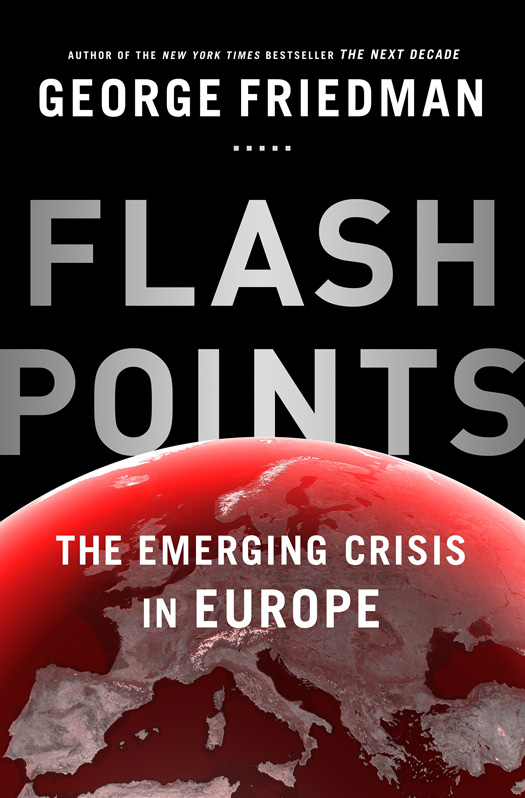
The Next Decade
The Next 100 Years
Americas Secret War
The Future of War
The Intelligence Edge
The Coming War with Japan
The Political Philosophy of the Frankfurt School
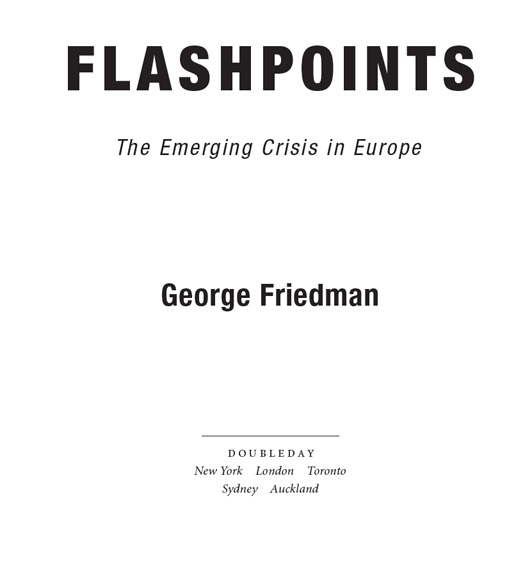

Copyright 2015 by George Friedman
All rights reserved. Published in the United States by Doubleday, a division of Random House LLC, New York, and distributed in Canada by Random House of Canada Limited, Toronto, Penguin Random House companies.
www.doubleday.com
DOUBLEDAY and the portrayal of an anchor with a dolphin are registered trademarks of Random House LLC.
Jacket design by Pete Garceau
Jacket imageJoao Virissimo/Thinkstock
All maps and charts created by Stratfor
Library of Congress Cataloging-in-Publication Data
Friedman, George.
Flashpoints : the emerging crisis in Europe / George Friedman.First edition.
pages cm
ISBN 978-0-385-53633-2 (hardcover)ISBN 978-0-385-53634-9 (eBook)
1. EuropePolitics and government21st centuryForecasting. 2. EuropeSocial conditions21st centuryForecasting. 3. GeopoliticsEuropeForecasting. 4. Politics and cultureEuropeForecasting. 5. Culture conflictEuropeForecasting. 6. Social predictionEurope. 7. EuropeHistory. I. Title. II. Title: Flashpoints.
D2024.F75 2015
940.5612dc23 2014031709
v3.1_r1
This book is dedicated to my sister, Agi.
Anthem for Doomed Youth
What passing-bells for these who die as cattle?
Only the monstrous anger of the guns.
Only the stuttering rifles rapid rattle
Can patter out their hasty orisons.
No mockeries now for them; no prayers nor bells;
Nor any voice of mourning save the choirs,
The shrill, demented choirs of wailing shells;
And bugles calling for them from sad shires.
What candles may be held to speed them all?
Not in the hands of boys, but in their eyes
Shall shine the holy glimmers of good-byes.
The pallor girls brows shall be their pall;
Their flowers the tenderness of patient minds,
And each slow dusk a drawing-down of blinds.
Wilfred Owen, killed at the Sambre, November 4, 1918



Between 1914 and 1945 roughly 100 million Europeans died from political causes: war, genocide, purges, planned starvation, and all the rest. That would be an extraordinary number of deaths anywhere and any time. It was particularly striking in Europe, which had, over the course of the previous four hundred years, collectively conquered most of the world and reshaped the way humanity thought of itself.
The conquest of the world was accompanied by the transformation of everyday life. Music was once something that you could hear only if you were there in person. Literacy was useless for most of human history as books were rare and distant. The darkness was now subject to human will. Men lived twice as long as they had previously and women no longer died in childbirth as a matter of course. It is difficult to comprehend the degree to which, by 1914, Europe had transformed the very fabric of life, not only in Europe but in the rest of the world.
Imagine, in 1913, attending a concert in any European capital. Mozart and Beethoven would be on the program. It may be a cold winter night, but the hall is brilliantly lit and warm with women elegantly but lightly dressed. In that grand room, winter has been banished. One of the men has just sent a telegram to Tokyo, ordering silks to be shipped and arrive in Europe within a month. Another couple has traveled a hundred miles in three hours by train to attend the concert. In 1492, when Europes adventure began, none of this was possible.
There is no sound like Mozart and Beethoven played by a great European symphony orchestra. Mozart allows you to hear sounds not connected to this world. Beethoven connects each sound to a moment of life. Someone listening to Beethovens Ninth Symphony must think of revolution, republicanism, reason, and, truth be told, of man as God. The art of Europe, immanent and transcendent, the philosophy and the politics, all have taken humanity to a place it has not been before. To many, it seemed as if they were at the gates of heaven. I think, had I been alive then, I would have shared that feeling.
No one expected this moment to be the preface to hell. In the next thirty-one years, Europe tore itself apart. The things that had made it greattechnology, philosophy, politicsturned on the Europeans, or more precisely, the Europeans turned them on each other and themselves. By the end of the thirty-one years, Europe had become a graveyard of ruined cities, shattered lives. Its hold on the world was cracked. The Ode to Joy from Beethovens Ninth Symphony was no longer a celebration of European life, but an ironic mockery of its pretensions.
Europe is not unique in this. Other civilizations have undergone turmoil, war, and savagery. But the unexpectedness, the intensity, the rapidity, and the consequences for the entire world were distinctive. And most distinctive was that this particular civilization should be capable of self-immolation. There may have been hints of this in the cruelty of colonialism, the deep inequality of European society, and its fragmentation into many pieces. But still, the connection between European high culture and death camps is surprising at the very least.
The Europeans conquered the world while conducting an internal civil war throughout the centuries. The European empire was built on a base of shifting sand. The real mystery is why European unity was so elusive. Europes geography makes unity difficult. Europe does not consist of a single, undifferentiated landmass. It has islands, peninsulas, and peninsulas on peninsulasand mountains blocking the peninsulas. It has seas and straits, enormous mountains, deep valleys, and endless plains. Europes rivers dont flow together into a single, uniting system as do Americas. They flow separately, dividing rather than uniting.
No continent is as small and fragmented as Europe. Only Australia is smaller, yet Europe today consists of fifty independent nations (including Turkey and the Caucasus, for reasons explained later). Crowded with nations, it is also crowded with people. Europes population density is 72.5 people per square kilometer. The European Unions density is 112 people per square kilometer. Asia has 86 people per square kilometer. Europe is crowded and fragmented.
Europes geography means it cant be united through conquest. It means that small nations survive for a very long time. The map of Europe in 1000 is similar to the map of 2000. Nations exist next to other nations for a long time, with long memories that make trust and forgiveness impossible. As a result, Europe has been a place where wars repeated themselves endlessly. The wars of the twentieth century were different only in that this time technology and ideology led to a continental catastrophe.
Font size:
Interval:
Bookmark:
Similar books «Flashpoints: The Emerging Crisis in Europe»
Look at similar books to Flashpoints: The Emerging Crisis in Europe. We have selected literature similar in name and meaning in the hope of providing readers with more options to find new, interesting, not yet read works.
Discussion, reviews of the book Flashpoints: The Emerging Crisis in Europe and just readers' own opinions. Leave your comments, write what you think about the work, its meaning or the main characters. Specify what exactly you liked and what you didn't like, and why you think so.

